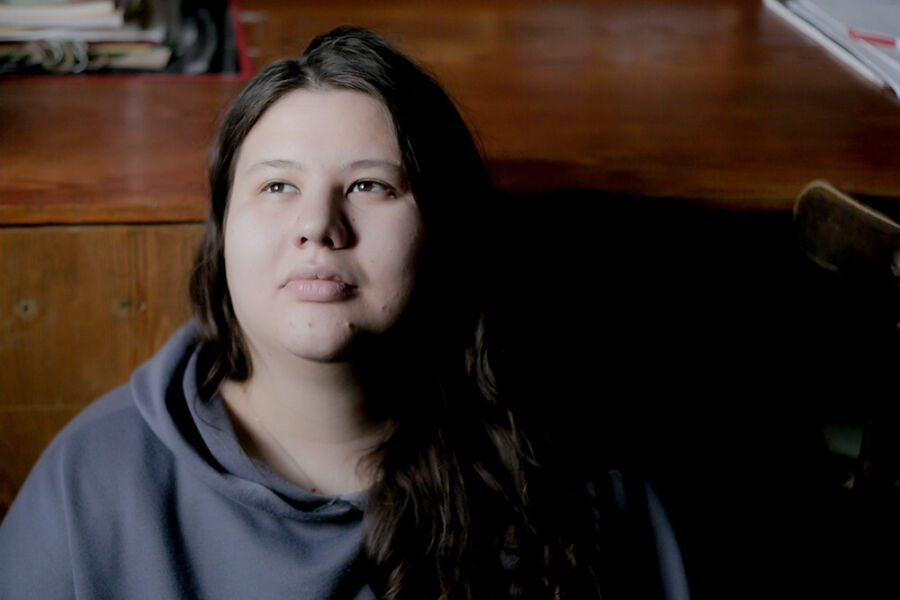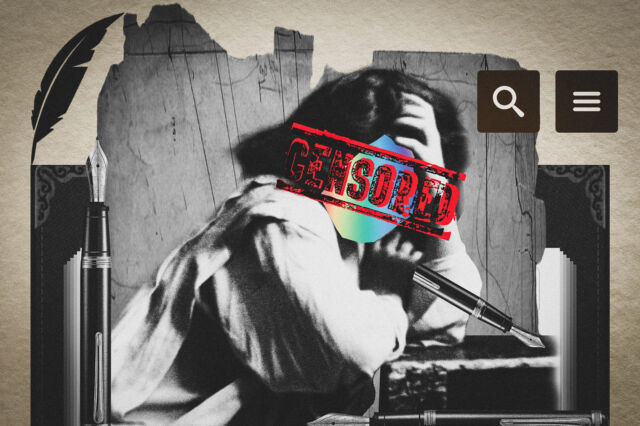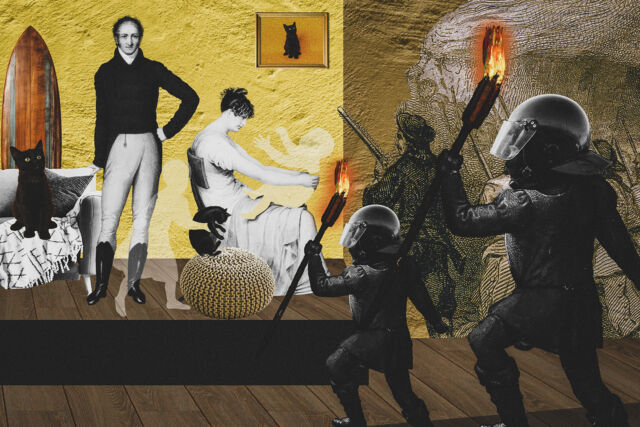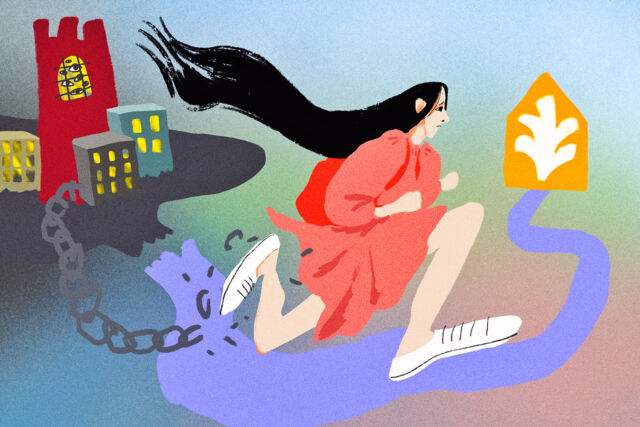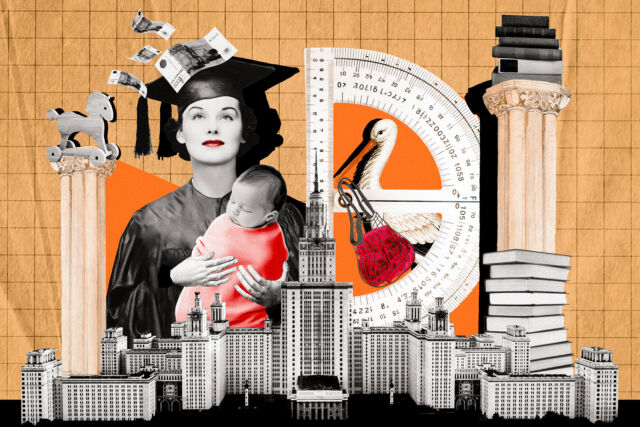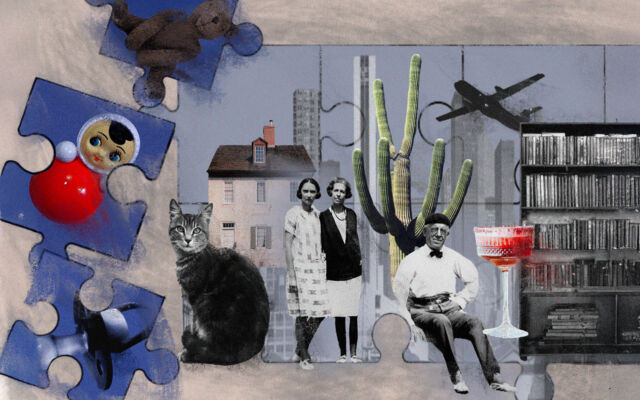Katya’s dad used to buy her shoes that were two sizes smaller to make her “build up stamina,” throw books at her because she wouldn’t memorize a poem well enough, or hit her for being late for a meeting. Today she is twenty two and her father still occasionally threatens to spank her.
Katya Goroshko told Glasnaya about how systematic child abuse carried out by parents can deprive a person of the sense of security and whether one can cope with the effects of that psychological trauma.
For this article, we partnered up with the Jewish Museum and Tolerance Center and Nesomnoi web project. The latter is based on a documentary about people who had suffered emotional trauma and decided to analyze their experience on camera. They talk about abuse, aggression, and manipulation; bullying at school, online, or in the workplace; conflicts between parents and their children, friends, or partners—and invite the viewers to discuss their stories and share their own.
“I remember not the pain but the humiliation”
In early childhood, my family made a lot of sense to me. Dad was always working so I only saw him in the evenings and on Sundays—he usually came home when I was already in bed. I spent more time with my mom: she picked me up from the kindergarten, we went grocery shopping and cooked dinner. Everything was clear and stable: mom was staying at home, I was their child, and dad was making money. I was fine with everything. That said, I remember really well how I was trying to sleep and they were screaming at each other in the next room. They had probably been doing that since the day I was born. Mom had one parenting strategy, dad had another. I kept asking them to be more quiet all the time.
When I was seven, my sister was born. I think our parents tried to fix their marriage with a new child but it didn’t work out. In cases like that children end up being unwanted by both parties because parents have their own problems. They soon broke up and my mom went to live with her mom. I stayed with dad because I was attached to my school. Also, dad didn’t want mom to “spoil” me so I had to live with him. Besides, everybody knew it would be hard for my mom to stay with two daughters, one of which was only three months old.
I didn’t want to live with dad. He was obsessed with my education, in a bad way. If you had a toy, it had to be educational, if you had a lesson, you had to get an A. My education was the reason for all our conflicts. Dad would do my homework with me and was always really strict about it. There could be no excuses. It didn’t matter that I was only seven, that I was tired and missed my mom.
When a child is seven and they don’t understand something, they won’t start understanding better if you scream at them. It doesn’t work like that.
But dad thought that if he got really angry with me, I would start thinking quicker, I would get my answers right, I would memorize a poem right away, or finish a handwriting book exercise. The problem with abusive relationships is that they don’t only consist of bad things. Everything is jumbled together, and you think: okay, tomorrow we will wake up, have breakfast together, have a chat, and it will be alright. Sometimes it does get better but at the same time, more and more bad stuff keeps happening.
My brain erased some memories but I remember dad considered physical violence to be normal. He loved building up my stamina. For example, I had big feet, and he would buy me shoes two sizes smaller—they were extremely uncomfortable but I had to wear them and endure. He believed that was the real stamina. He believed that challenges made me stronger, that I had to know how to put my clothes on standing on one foot—in case I end up on an island full of crabs. That explanation seemed humiliating to me even back then.
When I was a kid, I could never explain where my dad worked but I knew he was connected to the police—he didn’t work at a police station but wore a uniform. Dad practiced various restraint techniques on me—for example, how you grab someone’s finger to make them fall on the floor in three seconds. I can tolerate physical pain quite well even now. If I have to remove a pan with boiling water from the heat, I’ll do that with no problem. I’ll get burn blisters but I am not likely to feel any pain. All those exercises taught me not to feel anything—emotionally or physically. When I was with dad, I never realized when I was hungry, thirsty, tired, or when my feet were badly blistered. I never knew which one of my basic needs would make him angry so I pretended I didn’t have any. What he didn’t like the most was when I told him I was scared—to ski down a mountain or climb over a high fence on a playground.
He beat me but it was never to the point I couldn’t sit after that. He called it parenting. I remember clearly how much he loved it—this is the hardest thing to let go. The fact I was scared boosted his ego. Any kind of abuse is humiliating and today, many years later, I remember not the physical pain but the sense of shame, when you’re crying and your nose is running, and you’re told, “What are you crying for, idiot? You deserved this. Go wash your face at least instead of just standing here.” I wanted that to stop more than anything else in the world but I didn’t even think I could change the situation somehow.
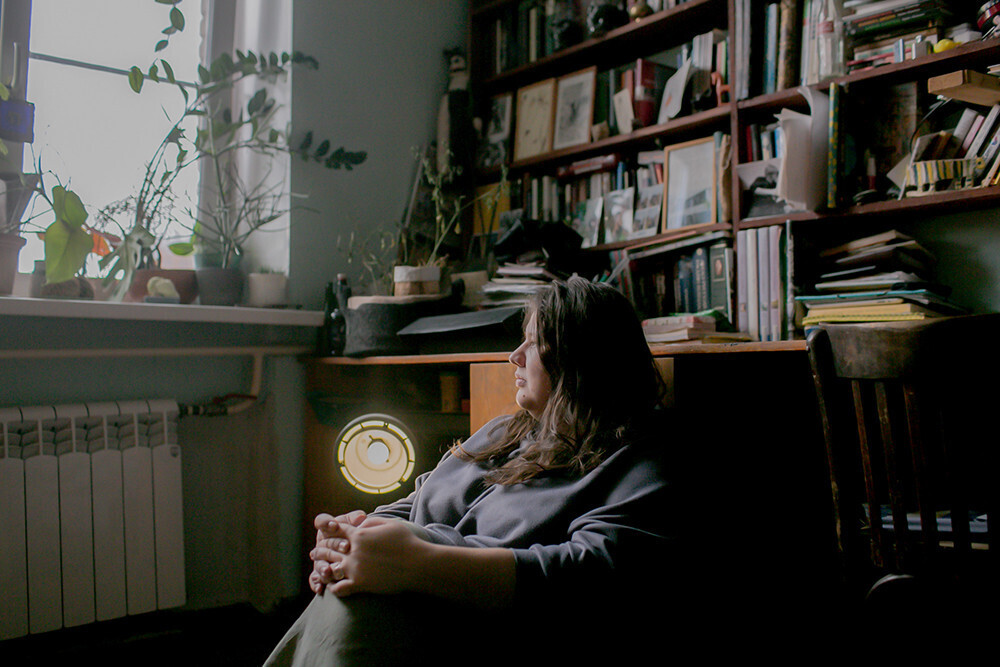
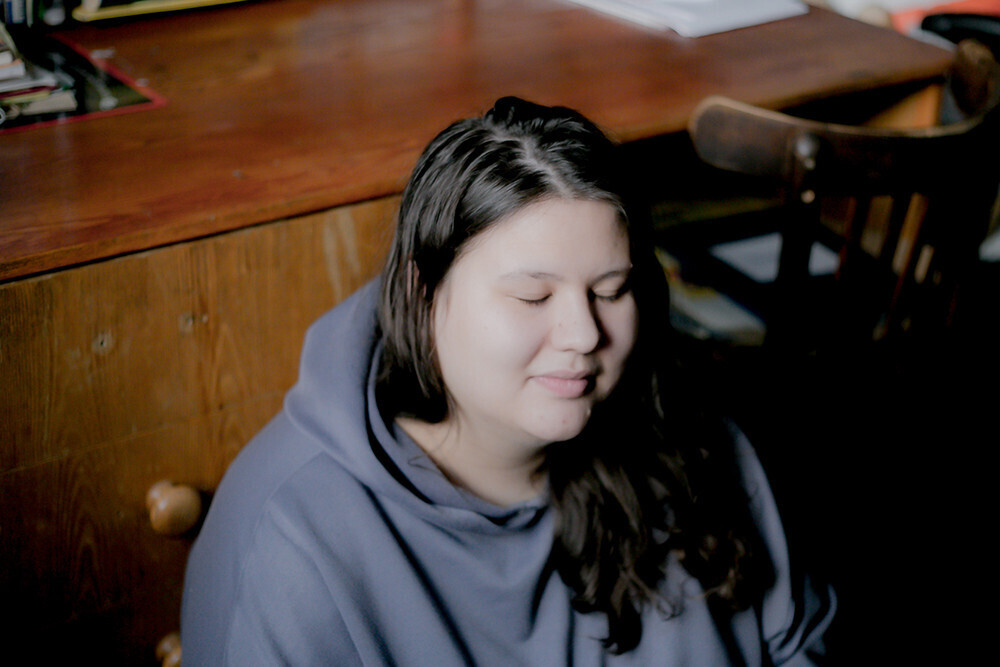
Everything I have just described used to happen in the evenings when I did my homework. I can’t say I did bad in school. I did my homework just like any other kid. He would scream at me for the way I held my pen, or placed my elbow, or slouched, or leaned towards a notebook. Every time he left the room I felt more relaxed and would start writing the way I was comfortable with. And when I heard him approaching the door, I straightened my back and took up a defensive stance.
Now I know I was constantly scared but I wasn’t able to identify my feelings back then. I just lived and permanently felt that I didn’t like it that way and that I wanted to go back to the old and understandable system. Every time dad brought me to mom’s place for the weekend and it was time to go back, I threw a temper tantrum. Six months later, they took pity on me and transferred me to another school. I started living with my mom. Dad sold his apartment and moved closer to our place. He visited us on the weekends and we started doing homework together again. Before, when dad was screaming, mom would usually calm him down—there was a balance. But now, it stopped working for some reason. Dad would scream, and mom would scream, too.
“You’ve let me down and have to face the consequences now”
Mom would hit me out of helplessness—she dragged me by the hair and gave me a blackeye once. Sometimes grandma got involved: after hearing the noise, she would run up to me and start hitting me in the head—the same way they hit the TV when it gets broken—saying, “What are you doing? Why are you screaming? The neighbours are going to come and call the police because of you.” Mom must have been depressed. She turned forty five, just gave birth to her second child, and her husband left her. That’s why she would take it out on me. I even used to look out the window and think, “Maybe I should go back and live with dad?”
But dad’s abuse was different, it was thought through. He didn’t let emotions control him, he never acted out. He wanted to feel powerful. Dad always made sure I knew I was in trouble and told me he was going to punish me. It could be a smack on the head when you were writing something while your notebook was wet with tears—and he made you rewrite it all because the letters got blurry.
Or, for example, if I was even a few minutes late when he picked me up from mom’s place, it went like:
—Did I tell you I would pick you up at six?
—Yes.
—Why weren’t you ready by six?
—Mom and I went for a walk.
—Do you realize you’ve let me down?
You can’t say yes because you don’t agree but you can’t say no either because you really were late. Then he’d say, “Lay down, I’m going to hit you with a belt ten times.” When I did dare to say no he pressured me by saying, “You’ve let me down and have to face the consequences now.”
I remember all the pillowcases on the sofa I would lie on, the print of the rug I saw in front of me and the room he’d beat me in. There are two episodes that really stuck in my memory. The first one is of me, tearful and exhausted, standing in front of him. We had been doing homework for a few hours already. I had to learn something by heart. I think it was a short poem in English. I took up a special position for poem reciting. There was a wardrobe next to me, a couch in front of me, and a lamp standing on a writing table behind me. Dad was sitting on the couch holding a really thick book in his hands. I made a mistake in one of the lines and he threw that book at me. It didn’t hit me—just knocked the lamp behind me off the table. But I clearly saw that he wanted to hurt me.
The anticipation of being hit was something I was constantly living with. It is still in my subconscious mind. Recently, someone simply waved a hand near me and I realized I got down to avoid the punch.
When it happened in the apartment of my dad’s parents, grandma and grandpa acted like nothing was going on.
Dad’s room was a separate confined world. Nobody ever talked about what was happening in there, even though there was no way grandma and grandpa couldn’t hear anything.
Grandma didn’t pay attention to my face swollen from tears and to the fact I ran to the bathroom every ten minutes and spent a lot of time there—there was nothing in the world I wanted less than coming out of there. Before my parents got divorced, my mom also used to stay in the next room without trying to do something sometimes. When I told her I didn’t want to do homework with dad anymore, she replied, “He is your father and he wants what’s best for you.” Maybe they were scared of him or maybe they didn’t want to get involved because that would mean they had to acknowledge the fact of abuse.
The second episode I remember is when I was eight or seven. I was lying on the same couch and he was spanking me with a belt. I don’t remember why. I was lying there thinking, “My butt will stop hurting today, tomorrow at the latest, but I will never forget this.”
“If we can’t reach out to the head, we’ll talk to the butt”
He could act like a different person, too, even a good one. But I think he never told me he loved me. I once heard him say I was important to him. He said he was sorry for what he did only once. That evening, we were studying so hard that my body temperature went up to 39°C. And he apologized, “Sorry I yelled so much.” When I grew up and started going to psychologists (I’ve been doing therapy for four years), we had a few conversations about it. He asked me why I did therapy. I told him it was because of him. He replied, “Well, what does it have to do with me?”
The biggest grudge I hold against my family is that no one protected me. And the second thing is that nobody acknowledged the things that were happening.
When I tell mom or dad that things were a certain way, they reply, “It never happened.” What do you mean it never happened?! Those are the memories my identity is based upon. Of course it happened.
I realize dad may read this. I want it to happen but I’m also afraid of it. I want him to understand how bad I felt. But I ran out of ways I could discuss it with him in person. This interview is not a way to take revenge on him for refusing to discuss anything with me. But if we’d talked it through and he’d at least tried to understand me and acknowledged that it all really happened, I wouldn’t have the urgent need to talk about abuse. I expected him to say, “I’m really sorry. I hurt you. I don’t know why you’re even talking to me. Is there anything I could do? I don’t want to lose you.”
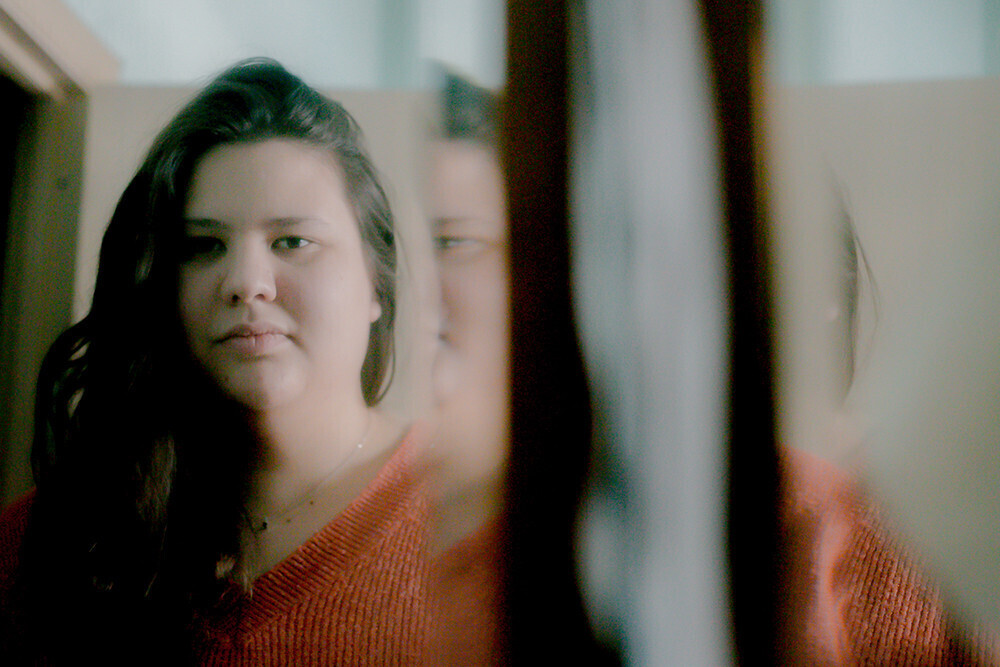
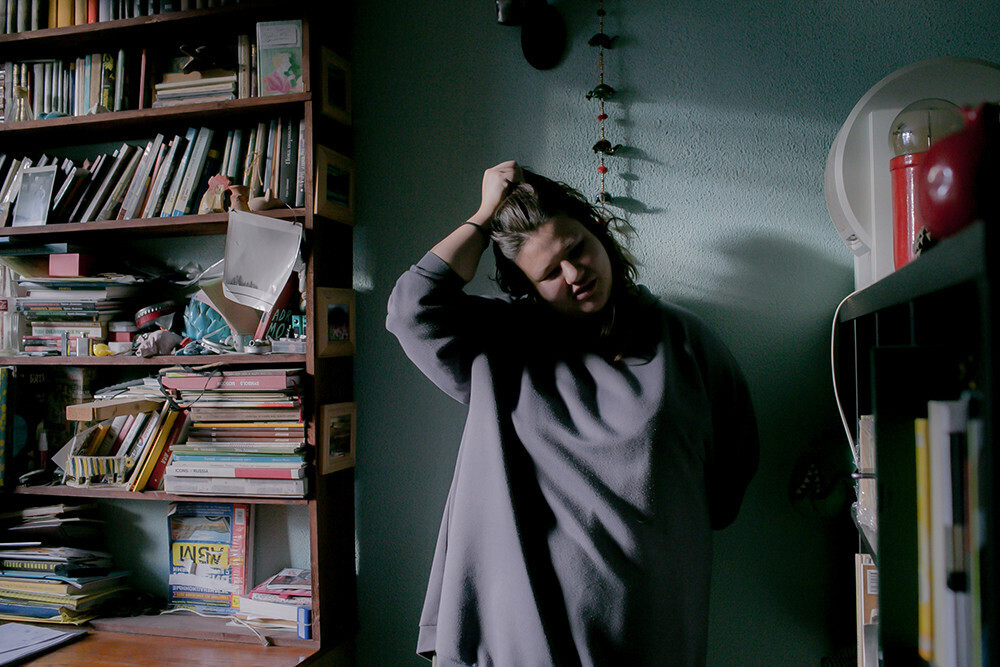
Dad never calls me first—he thinks it is beneath his dignity. Before I started my eleventh grade, I had to call him every time when I came to school and when I came back. But I knew he wasn’t concerned about my safety, it was a way of controlling me. He never called me first. Calling to find out where your child was when you’re worried was considered not a manly thing to do. Up until ninth grade, he walked me to school every morning. We fought over my homework once. The next morning, I called him fifteen minutes before we were supposed to meet and told him I had already left because I had to be at school earlier. We both knew I lied and that was my way of telling him to buzz off. We didn’t talk for nine month after that.
Now that I am twenty two, dad stopped using a belt but hasn’t stopped trying to control me. We recently went on a trip together. I am always busy and text people a lot. It is important for me to stay online. Dad kept saying, “If you don’t get off your phone, you’ll regret it.” The phrases he likes using are not really threats but more like sayings. When I was little, his favourite one was “If we can’t reach out to the head, we’ll talk to the butt.” Or he would say, “I wish I could spank you with a belt right now so you understand”, “the belt misses your butt.” I learned to reply with “it doesn’t”, “you won’t spank me”, “you won’t touch me” but he would just give me a smirk. He never took my words seriously. There was another saying: “It hurts, it hurts, the chicken blurts.” I remember he always said it to me when he cut my nails—and he always trimmed them very deep.
“It feels like you were skinned and nobody can see it”
I went to a specialized physics and mathematics school in the fifth grade. It was dad who chose it for me. He always insisted I studied sciences. He trained me to pass the exams so in the end, I got accepted. It was a good school with good teachers. There was no backslapping. We were treated with respect. For the first time in my life, I saw people being interested in what I had to say. They didn’t scream at students and held discussions with them. Those were new and warm feelings—I felt appreciated. That was a complete contrast to what was happening in our family. So, I never hurried to go home and stayed at school till six. I found loopholes so I could survive.
However, when I was in ninth grade, half of the teachers left the school, followed by around ten students. I left, too—for Moscow State School 57, but I chose to study liberal arts (it made my dad mad) the same way my ex classmates did. It was the first time I made a decision myself. I got lucky with my class and the teacher. During our literature classes, we learned to think, express our thoughts and choose the right words. Then, on a school trip, I met a girl who had already graduated and did child studies. She was the first person who could not only express sympathy for me but also give a name to the things that had happened to me. It was important to call abuse abuse and to accept the fact that dad really did use to hit me in his room.
There is a good book called Toxic Parents. I was crying when I was reading it because I found there what I had been feeling for many years but couldn’t give a name to. There is a metaphor in the book: you do your thing but it feels like you were skinned and nobody can see it. The slightest touch causes a lot of pain. But other people think you’re fine. I realized that was the way I felt.
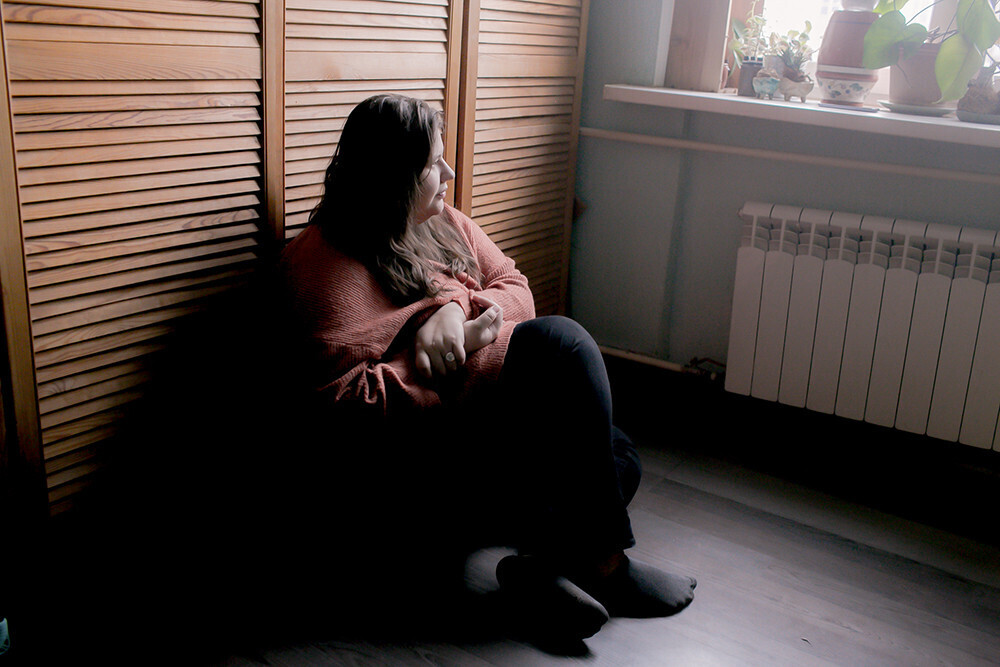
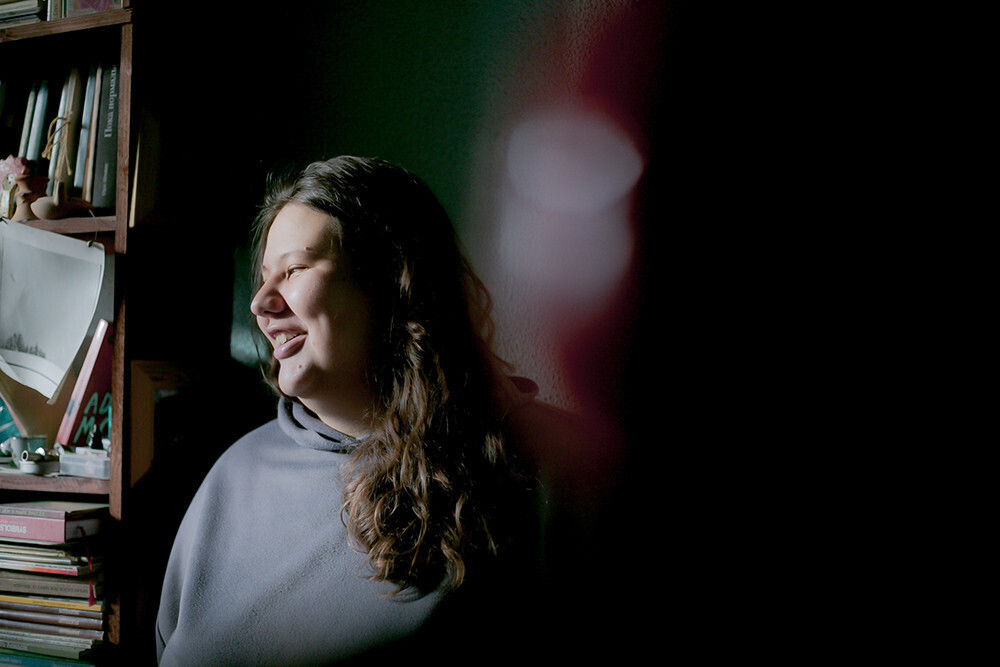
When I was about fifteen, my relationship with mom got worse. She would kick me out of the house. I would leave for half a day and come back. A month after I turned eighteen, after another fight, I left for good—I moved in with that girl I met on the trip. I lived in her kitchen. I needed a person I could trust, someone I didn’t have to defend myself from, someone who wasn’t a threat. That friend became that person to me.
When dad found out mom and I fought and I left the house, he called me complaining: what kind of example are you setting for your little sister? He didn’t ask me where I was or if I had a place to sleep. What kind of example I was setting for my sister was more important. I explained to him that I couldn’t stand that anymore, that I was tired and didn’t want to see anyone. At some point, he said, “You’ll understand when you have your own children.” I firmly responded that after everything I had seen I didn’t want to start a family and have a husband and children. And he must have got worried because I suddenly heard an apology in his response, “You will be more lucky than your mom. You will marry a person who will be nothing like me.”
Because of the feelings of shame and guilt my parents gave me, I’ve always had an idea that I made the lives of my loved ones more difficult. But I really wanted to make them simpler. For a long period of time, I couldn’t get rid of the feeling that everything was wrong with me and I needed to change. It took me many years to realize it wasn’t about me and that shame and guilt were actually anger I wasn’t allowed to feel. When I realized that, I started feeling better.
“I made it to the moment I had friends”
That same book, Toxic Parents, says: until you realize you were abused, the responsibility for the way you act lies with those who traumatized you. But as soon as you figure everything out, the responsibility gets shifted onto you. I see my responsibility in not passing abuse on. Don’t have kids if you’re not ready. You won’t do anyone good. You children will definitely feel bad.
Now it is obvious to me that dad is a traumatized child himself. I don’t think he is a happy person. He believes everybody wants something from him and hates him. It is not far off. If he hadn’t done anything to me, I would show him some sympathy. But he had, and I don’t want to feel sorry for him.
Perhaps dad was right about one thing: he used to say I was stubborn. I first thought about wanting to die when I was about nine. Death seemed to be the only thing that could stop my suffering. But I didn’t die and made it to the moment I had friends and people that were truly important to me.
Ever since I was in the eleventh grade, I started working so I could be financially independent from my parents. When I was eighteen, I got into a publishing project, followed by various book fairs. I accepted any job offers. And I did well. Now I am twenty two and I know how to do pretty much everything. And if I don’t, I know how to learn. My work is always somehow connected to my story: I do cultural and social projects related to women, children, and books. I think it is important to support women and children while books are a way of talking about those topics. I don’t believe in the dialogue between dad and me, but I believe in the dialogue as such. I’ve been taught to hide my emotions for my entire life and now it helps in my work as a fair organiser. A venue can be a real mess but you figure it all out with a straight face. It is a form of therapy for me in a way: if we are able to solve difficult problems at our book fairs without raising our voices or using physical violence, that means it is doable. It’s just my parents who chose another option.
Over time, thanks to the support of my loved ones and therapy, feelings change. I used to tell my story because it was impossible to stay silent. The fact nobody knew about it was eating at me. Now I am sharing my story so that as many people as possible understand that
beating and humiliating children is abuse, and living with this kind of experience hurts immensely. Do you really want your children to feel the way I’ve just described?
You would think that is something easy to understand. But I read an interview with a father who didn’t realize that when he beat his children. They don’t talk to him these days, he is quite old, and he is all alone. In the interview, he kept saying that if he had known what kind of impact his slaps and smacks had on the children, he would have never raised his hand on them.
If you don’t want someone to call you an abuser twenty years later, don’t abuse. You can’t silence people and say you were framed. You are framing yourself. This interview is not an attempt to talk to my father, I don’t expect him to start thinking about it and call me saying “Katya, I’m sorry.”
I’m telling this story not to those who have had the same experience but to those who believe that hitting a child is not a big deal. To those people who think, “Yeah, I belted her once, so what?” Apologizing and saying “I’m sorry, I feel terrible. I lost control but it doesn’t justify me in any way. I don’t want to do that to you ever again” is one thing. But if you think “Come on, get over it”—well, your child might actually never get over it. Your actions affect the world and people around you.
I feel like now I can say that this story doesn’t define me. It stays with me, but I am more than that experience. I learned to feel and express my emotions again. I am prepared to defend myself and I know how to do that. I am not alone anymore and I know how I want to live my life.
It is hard to disconnect from that experience and let it go completely but I want to lead a full life. And move on.

The Different series is a project by Glasnaya and Novaya Gazeta about people who do not meet the standards of today’s Russian society, which leads to them becoming invisible to the majority. In Russia, it is customary not to notice, to ignore “others”, those who are different—and ignorance becomes the breeding ground for xenophobia and discrimination.
Those who are different are often afraid to put themselves out there. But there are more and more people who have already overcome their fears. Those are women and men breaking stereotypes and the framework of patriarchy.
The material is published jointly with Novaya Gazeta.

